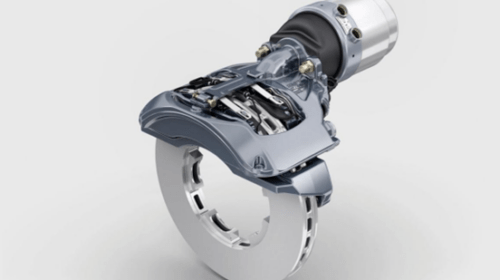 PSV parts distributor Imperial Engineering says that operators mustn’t forget forget the conventional brake system on vehicles which do most of their braking through regeneration
PSV parts distributor Imperial Engineering says that operators mustn’t forget forget the conventional brake system on vehicles which do most of their braking through regeneration
Driven by the need to improve urban air quality and targets to eliminate carbon emissions, bus operators across the UK are continuing to lead the way through the introduction of hybrid and battery-electric vehicles into their fleets. From the engineering perspective, introducing alternative drivetrains has seen key components being replaced with different systems, such as electrically-driven air compressors, as well as the incorporation of new technologies, such as regenerative braking. Hybrid and electric buses use a combination of regenerative braking and friction-based air braking systems.
Similar to the principle of a bicycle dynamo, regenerative braking uses the electric motor as a generator to recoup the kinetic energy that’s released during braking by performing ‘regenerative deceleration’. This kinetic energy is then converted into electrical energy, which is stored in the battery for reuse in the driving cycle. Vehicles fitted with regenerative braking results in the complementary air brake system being used less frequently, compared with diesel buses fitted solely with air braking. Importantly, however, regenerative braking on its own is not enough to stop a vehicle, so air braking is still required to undertake this critical function.
[…]By subscribing you will benefit from:
- Operator & Supplier Profiles
- Face-to-Face Interviews
- Lastest News
- Test Drives and Reviews
- Legal Updates
- Route Focus
- Industry Insider Opinions
- Passenger Perspective
- Vehicle Launches
- and much more!


